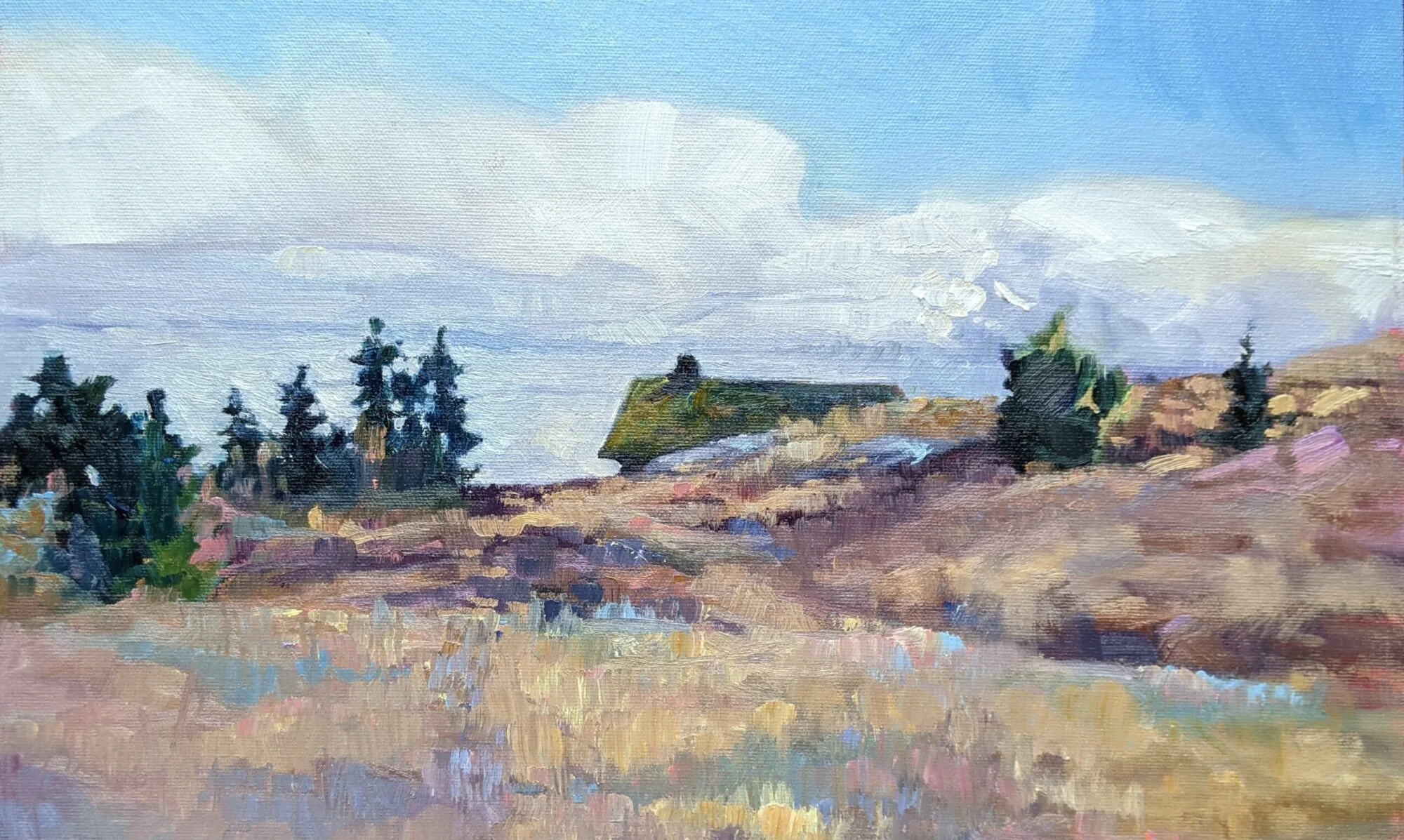The professional painter ought to set some commercial goals. What form should they take?
| Michelle reading, by Carol L. Douglas. While I love painting and teaching figure, there’s no room for it in my imaginary business plan. |
One of the best things about my Ocean-Park-to-Castine week is that I get to spend it with Mary Byrom. We are good buddies but she lives in North Berwick, ME and I live in Rockport. They’re just far enough apart to make casual get-togethers impossible.
There isn’t much time for idle conversation during these plein air events but we do snatch moments. You might think we’d talk about technique or lofty ideals of art. Mostly, we talk business: are you going to [this place]? How were sales at [that place]?
Recently, Mary has been larding her conversation with the phrase “my business plan,” as in, “I’m not sure how that fits in my business plan.”
| More work than they bargained for, by Carol L. Douglas. Do boatyard pictures still fit in my business plan? |
After Castine, Mary, her husband, and I were enjoying some cold water in my kitchen (a delicious luxury after a week in the sun). Mary mentioned her business plan again. “Mary,” I objected, “Who has a business plan? My business plan is, um, ‘paint something.’” We guffawed, because we all know that artists are notorious for our bad planning skills.
As usual, Mary is several steps ahead of me. I mulled over what she said all afternoon. It makes sense to have a forward agenda. My problem is that I have absolutely no business experience. The whole notion of a business plan is alien to me.
| Under the Queensboro Bridge, by Carol L. Douglas. I didn’t stop painting urban scenes because of a business plan; I just like painting rocks better. |
The distinction between an amateur and a professional is whether one does one’s work for love or money. But it goes deeper than that: it’s about the discipline of working every day, on a schedule. It means treating painting as a real job and not something one does when the mood strikes. Even with this, however, I know artists who work extremely hard and don’t make much money.
That, I think, is because being a painter is so personal. Just as modesty precludes the polite person from telling the world how great he is, it precludes the personally-invested artist from selling his own work. For all of us, a business plan is a fence we could erect to prevent our feelings from hindering our careers.
| Butter, by Carol L. Douglas. Still lives were never part of my business plan; they’re like practicing scales. |
I looked up business plans for artists on the internet. Frankly, they’re gobbledygook to me. I don’t know, for example, how setting a five-year goal of making $200,000 a year in sales can possibly help me attain even a dollar more in sales today. If someone out there is knowledgeable about this and wants to help me understand, I’d love to hear more.
Meanwhile, I do have three simple goals for this year:
- Add events in the South or Midwest to extend my season. The Northeast jams all our festivals in a four-month period from July to October. This is reasonable considering our climate, but it puts too much pressure on us to be seasonal workers.
- Diversify my gallery representation into other geographical areas.
- Paint more boats.
